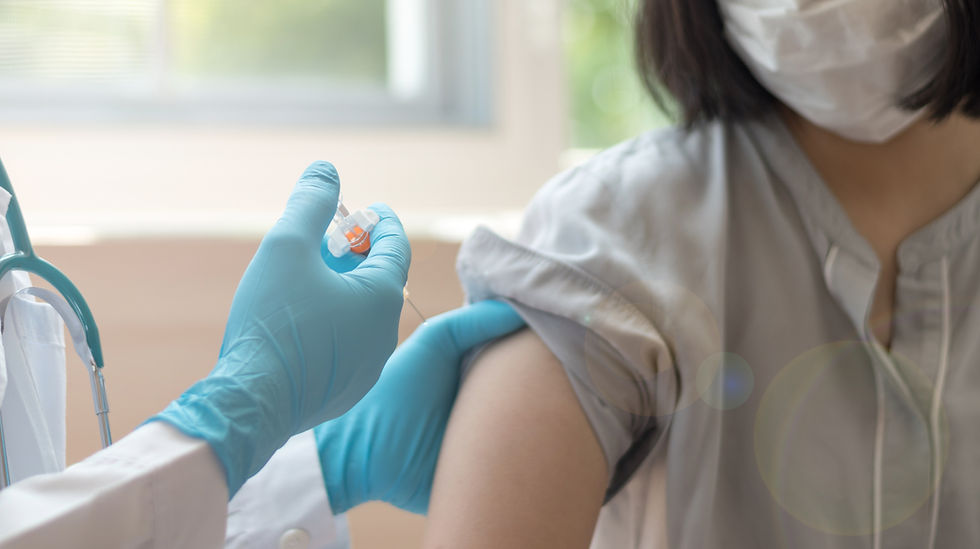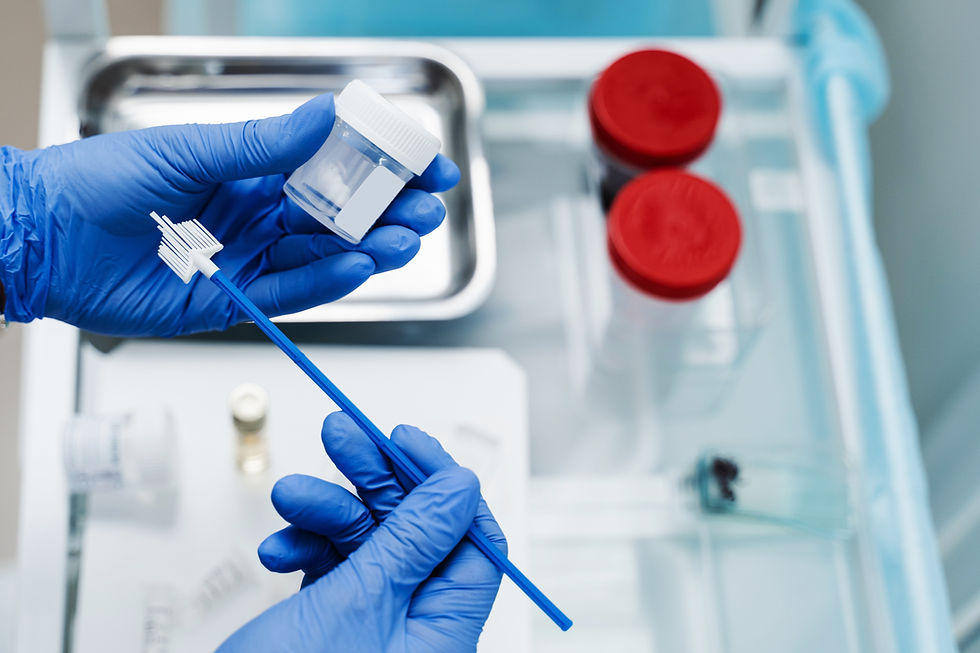At What Age Do You Get the Cervical Cancer Vaccine? Your Complete Guide
- athenawomenspecialist
- Sep 26, 2025
- 4 min read
Updated: Oct 1, 2025

Cervical cancer is one of the most preventable cancers today, thanks largely to the HPV vaccine. But many women in Singapore are unsure about when to get it, how it works, and what to expect.
At Athena Women's Specialist, we believe in empowering you with clear information so you can make confident decisions about your health.
This guide answers all your questions about the cervical cancer vaccine, including the ideal age for vaccination.
What is Cervical Cancer?
Cervical cancer occurs when abnormal cells in the cervix (the opening to the uterus) grow out of control. Nearly all cases are caused by a common virus known as the Human Papillomavirus (HPV). This virus can cause normal cervical cells to turn abnormal over many years, potentially developing into cancer if not found and treated early. The challenge is that HPV and these cell changes often have no symptoms until cancer develops, and it is usually at a more advanced stage.
Why Do You Need the Vaccine?
The HPV vaccine is an effective tool in preventing cervical cancer. It is the only vaccine available that protects against a specific cancer. Here’s why it’s essential:
It protects you from the most common high-risk types of HPV that cause cancer.
It provides long-term protection, significantly reducing your future risk.
It’s a safe and proven prevention method, backed by the World Health Organisation (WHO).
Getting vaccinated is a proactive step to ensure you have one less health concern to worry about.
When Should You Get the Cervical Cancer Vaccine? (Recommended Age)
The key to the vaccine's effectiveness is timing. The ideal time to get vaccinated is before you are exposed to the virus, which is typically before becoming sexually active.
Best Age Range: The vaccine is most effective when given between ages 9 and 14. During these early years, exposure to HPV is typically lowest, allowing the vaccine to provide optimal protection.
Older Age Groups: If you missed the vaccine earlier, it is still highly beneficial. The vaccine is licensed for:
Women up to age 26 (for Cervarix)
Women and men up to age 45 (for Gardasil 9)
Even if you have been sexually active, you may still benefit from the vaccine, as it can protect against HPV strains you haven't encountered yet. Dr Ida Ismail-Pratt can provide personalised advice during a consultation.
Early Warning Signs
It's crucial to understand that the HPV vaccine prevents cancer; it does not treat existing HPV infections or cell changes. This is why knowing the signs is important. However, early-stage cervical cancer often has no symptoms.
As it advances, warning signs may include:
Abnormal vaginal bleeding (between periods, after sex, or after menopause)
Unusual vaginal discharge
Pain during intercourse
Do not wait for symptoms. Regular screening is your best defence for detecting issues early when they are most treatable.
Side Effects of the Cervical Cancer Vaccine
The HPV vaccine has a strong safety profile and is well-tolerated by most people. Common side effects are mild and temporary, including:
Pain, redness, or swelling at the injection site
A temporary, mild headache
There is minimal "downtime" required after vaccination, and you can resume your daily activities immediately. Serious side effects are extremely rare.
Why Vaccination Doesn’t Replace Screening
This is a critical point: Even if you have been vaccinated, you must still go for regular cervical cancer screening when you are eligible.
The vaccine protects against the most common high-risk HPV types, but not all of them.
Regular screening (via Pap smears or HPV tests) is the only way to detect the presence of high-risk HPV or abnormal cell changes early.
Think of it as a two-part shield: the vaccine is your first line of defence, and regular screening is your essential safety net.
Where to Get the Cervical Cancer Vaccine in Singapore
In Singapore, you can access the HPV vaccine through:
Polyclinics – only the bivalent vaccine (Cervarix) is available.
The School HPV Vaccination Programme for young students – Bivalent vaccine (Cervarix) is administered here.
Private clinics (Gynaecology specialists), like Athena Women's Specialist.
We offer Gardasil 9, which provides the broadest protection available—guarding against 7 high-risk HPV types (responsible for ~90% of cervical cancers) and 2 types that cause genital warts.
Get a Professional Assessment at Athena Women's Specialist
Deciding on vaccination involves considering your age, health history, and lifestyle. A personalised consultation with a compassionate specialist is the best way to get answers tailored to you.
At Athena Women's Specialist, we create a warm, supportive sanctuary where you can discuss your needs without judgment. Dr Ida Ismail-Pratt and her team are dedicated to providing holistic care that makes you feel heard, informed, and empowered.
Take control of your health journey today. Book a consultation with us to discuss the HPV vaccine and your cervical cancer prevention plan.
FAQs on Cervical Cancer Vaccine
I'm over 26. Can I still get the vaccine?
Yes. Gardasil 9 is licensed for women and men up to age 45. Please schedule a consultation so Dr Ida can assess if it is right for you.
How many doses do I need?
If you start the vaccine series before age 15, you need 2 doses (0 and 6 months). If you start at age 15 or older, you need 3 doses (0, 1-2, and 6 months).
Can I get the vaccine if I already have HPV?
Yes. The vaccine does not treat existing infections, but it can protect you from other high-risk HPV types you haven't been exposed to.
Does the vaccine contain the live virus?
No. The vaccine is made from a single protein from the virus (a Viral Like Particle). It cannot cause HPV infection or cancer.
I’ve had the vaccine. How often do I need screening?
You should follow Singapore's national screening guidelines: a Pap smear every 3 years if you're 25-29, or an HPV test every 5 years if you're 30-69.






